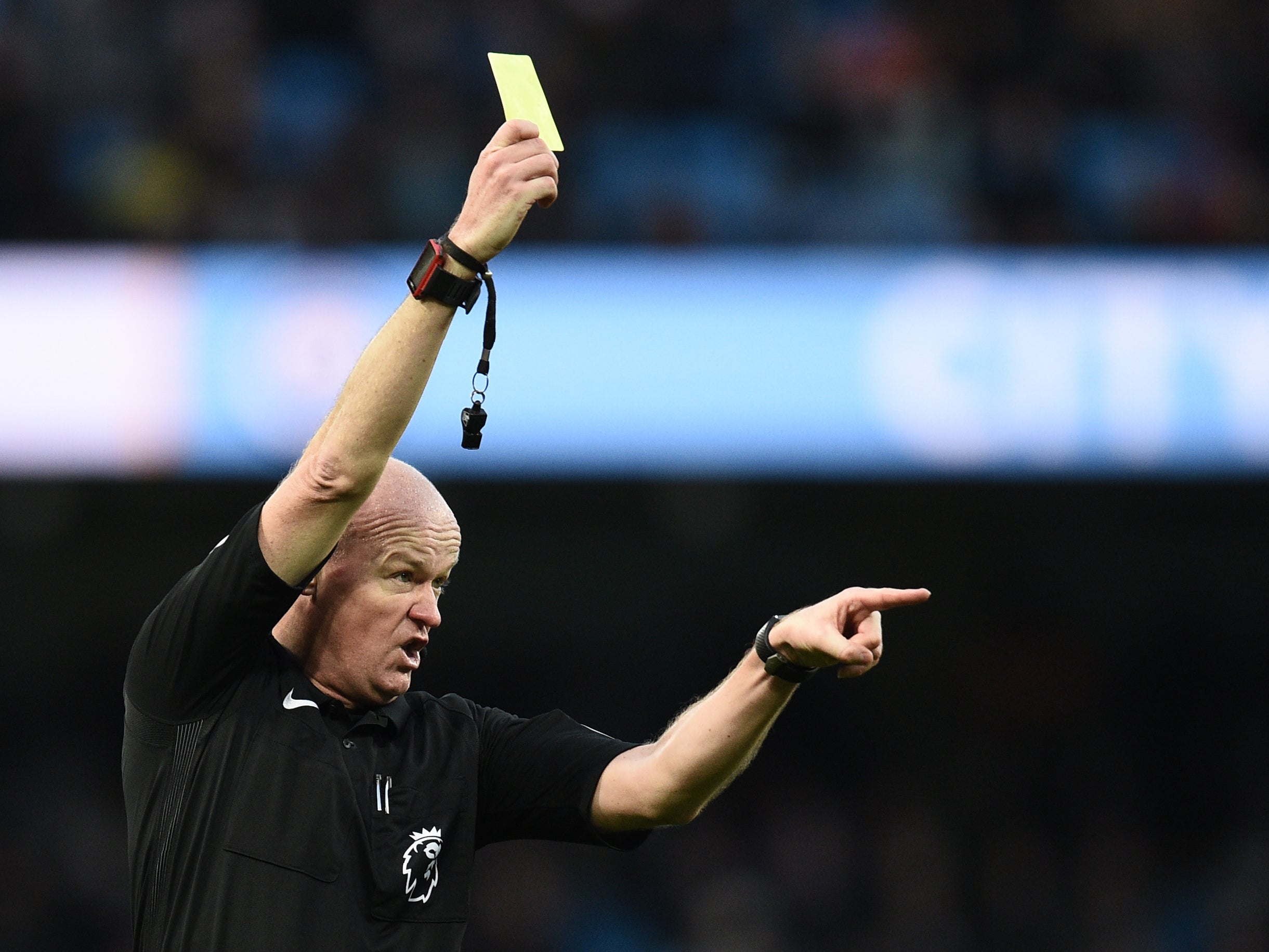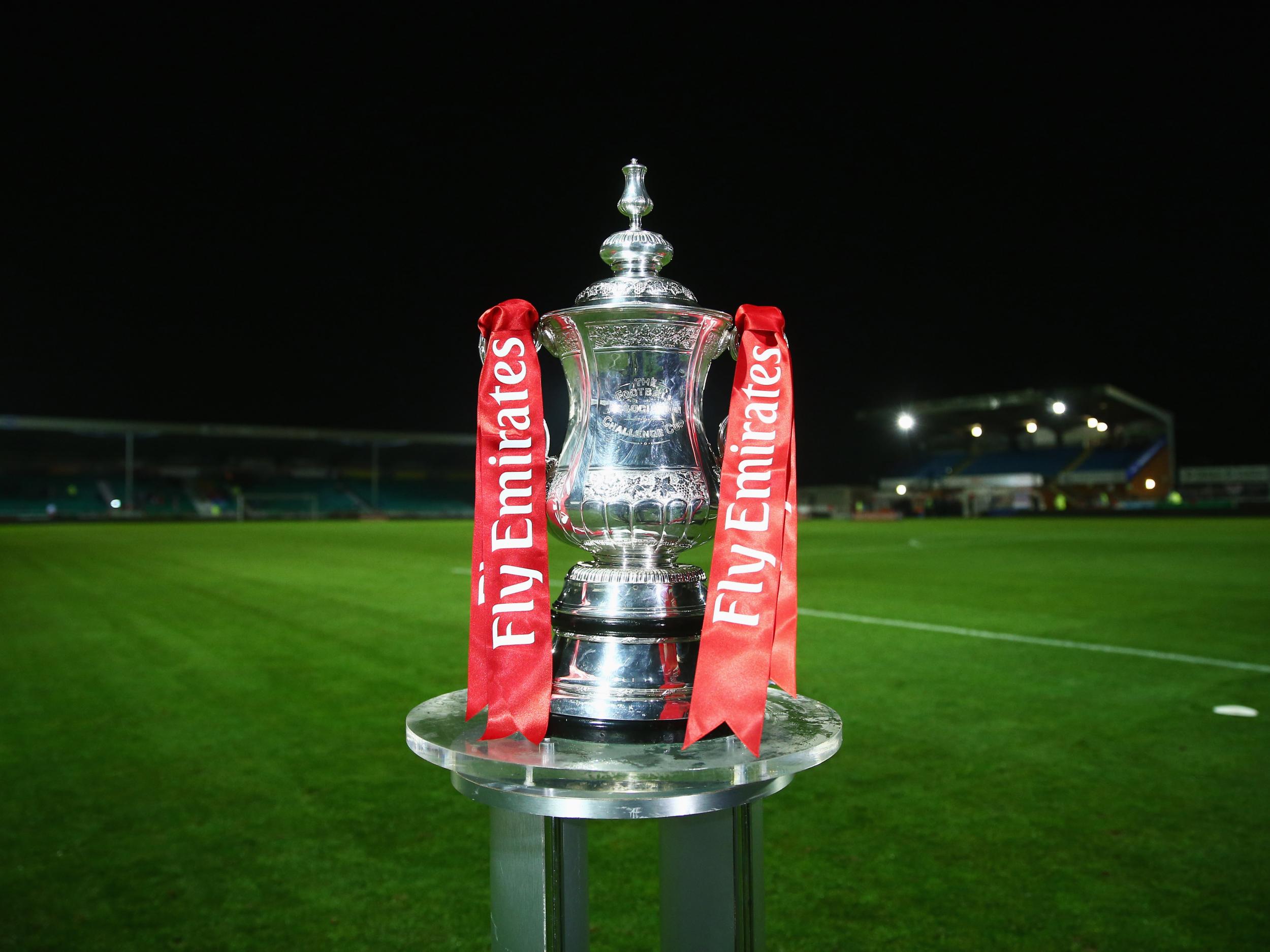International Football Association Board approve plans to introduce rolling substitutes and sin bins
At the same meeting, which was held at Wembley Stadium, it was announced that this year's FA Cup quarter-finalists will be allowed to field a fourth substitute if ties go to extra time

Football's global rule-making body has unanimously backed a plan to allow countries to introduce extra substitutes, sin bins and varying match durations to disability, grassroots and youth football.
The "modifications" to the laws of the game were approved at the International Football Associaton Board's (IFAB) 131st annual general meeting at Wembley but do not apply in the top divisions or senior internationals.
The meeting, which was chaired by Football Association chief executive Martin Glenn, also approved further testing of video assistant referees (VARs) and agreed a strategy to improve player behaviour.
A key part of that strategy will be considering how better to use captains. This may eventually mean only captains can speak to match officials, as is the case in rugby union, but such a rule-change does not appear to be imminent.
For historic reasons, IFAB is made up of the football associations of England, Northern Ireland, Scotland and Wales, and four representatives from FIFA to represent the rest of the game. Each association gets one vote and a three-quarters majority is needed to make a change.
While the most significant changes were limited to development and grassroots football, the meeting did come up with a few tweaks for the elite game.
One of those could be seen later this month in the quarter-finals of the FA Cup, when teams will be allowed to make a fourth substitute in extra time.

Speaking to reporters after the meeting, Glenn said: "With the Cup now adopting a straight knockout format, the introduction of a fourth substitute in extra-time will bring extra intrigue and interest.
"From a technical point of view, it will be interesting to see how managers use the chance to make an additional substitution in such high-profile games and the impact it has on the final result."
That move is part of a trial that was announced at last year's meeting and the FA Cup will be used to trial another potential law change next year, when VARs will be used from the third round, providing the host stadium can accommodate enough camera positions.

Another interesting idea that IFAB is keen to test is a fairer system for penalty shootouts.
Welsh FA chief executive Jonathan Ford explained IFAB had been presented with statistical evidence that shows the team taking the first penalty kick wins six out of 10 shootouts - Glenn quipped "or Germany".
To remove the advantage of winning the toss, IFAB is planning to test a tennis tiebreak-style order - so instead of a shootout going ABABAB and so on, it will go ABBA ABBA until sudden death when it reverts to ABAB.
With few major changes to announce, this year's IFAB was more about consultation and consensus-building, with the gradual introduction of more video technology to the game being the perfect example of this approach.
Having already been used at last year's FIFA Club World Cup, VARs will also be used at the Under-20 World Cup and Confederations Cup, while the leagues such as the Bundesliga and Major League Soccer are also pushing ahead with their own trials.

FIFA president Gianni Infantino said he was confident VARs could also be seen at the 2018 World Cup.
Infantino said: "They will allow the right decision to be taken in game-changing circumstances or, if you take it the other way, they will prevent referees from a making a mistake - we all make mistakes, so this is right in terms of justice.
"It won't be every single decision or in every case, but when it is used it will be the right decision."
Regan added that the introduction of technology should also have a positive effect on player behaviour.
There was also wide agreement on one of football's more contentious issues, the possible link between heading and serious brain injuries.
Glenn said the FA would soon be announcing a "six-figure" investment with the Professional Footballers' Association in a historic study into potential risks of heading the ball, while supporting the separate "massive study" being conducted by European federation UEFA.
Join our commenting forum
Join thought-provoking conversations, follow other Independent readers and see their replies
Comments
Bookmark popover
Removed from bookmarks